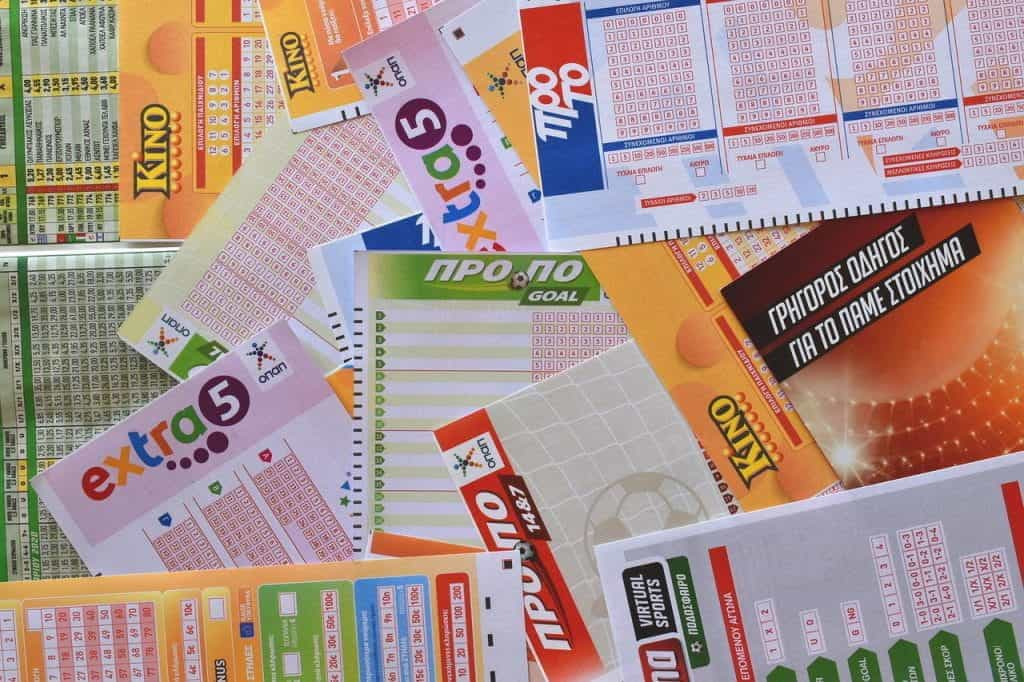Michigan Sees Rise in Online Lottery Profits
The Michigan Lottery has released its financial report for 2019, revealing that the year set an all-time record for revenues generated from online ticket sales. The information has been lauded by many as proof that the soon-to-be-launched expanded online gambling industry will be a boon for Michigan state coffers.

The Michigan Lottery has reported a record number of sales generated from its iLottery service as it prepares to expand its online gambling options. ©Thanasis Papazacharias, Pixabay
Gross revenues from online ticket sales alone in 2019 have been reported as being $961 million. After deducting expenses as well as the $845 million awarded in prizes, the net takings for the year from online sales is $116 million. The iLottery’s return to player rate is around 88% compared to traditional lotteries 50%.
Despite this, the traditional lottery still remains to be the most popular option, with ticket sales in 2019 reported to be $3.9 billion, which is up a whopping $300 million from $3.6 billion in 2018. Of these gross revenues, the lotto paid out $2.36 billion in prizes. Outside of expenses, the state-operated Michigan Lottery turned a net profit of $1.07 billion.
Currently, the lottery is the only online gambling option that state residents can enjoy. The iLottery, as it’s locally named, started operations in 2014 and has seen profits explode in recent years. While the first-year net revenues were initially reported to be $600,000, the second year saw gross revenues of $18.5 million, then $48 million in the third year.
Total iLottery sales were up 25% in 2019, with net wins also up by around 24% growth. In contrast, instant-win scratch and pull-tab tickets were up by 11% in 2019. Traditional draw games sales were up by 9.5% in 2019, though the traditional lottery was up by roughly 26% thanks to a $1.6 billion Mega Millions jackpot prize.
A number of factors have been attributed to the rise in popularity of iLottery sales. These include the high return to player rate compared to traditional lottery, the novelty slot machine-style gaming mechanics of the products and wider promotion of the iLottery which saw $8.2 million worth of free play offers given to players in 2019.
The Future of iGaming in Michigan
It is likely that the success of its online lottery program helped influence lawmakers to rule in favor of expanding the state’s iGaming options. At the end of 2019, a bi-partisan effort saw 10 gambling bills passed that will legalize sports betting, daily fantasy sports and online gambling.
However, the Michigan Gaming Control Board (MGCB) has hinted that these other forms of iGaming won’t be launched until around 2021. “We’re estimating it will take about a year to complete the rule-making process for mobile sports wagering and internet casino gambling,” said Mary Kay Bean, communications specialist for the MGCB.
Regardless of the delay, Governor Gretchen Whitmer signed the bills into law in a ceremonial signing in late January. State Representative Brandt Iden, who spearheaded the gambling expansion efforts, said at the signing that the law’s evolution on matters relating to online gambling will ultimately be beneficial for the state’s residents.
“Consumers will have safe, regulated online sites and will no longer have to settle for traveling to other states or playing through risky, offshore operators. Our students and schools will have more revenue because of these reforms — without raising general taxes. These reforms have been more than three years in the making, and I know they will benefit our state for years to come.”– Brandt Iden, Representative, Michigan House of Representatives
Most of the $1.07 billion in gaming revenues have since been given to the state’s School Aid Fund, with some going to Health & Human Services and the state’s general fund. The reliance on the lottery to fund Michigan’s K-12 school program was touted as a major concern for politicians when discussing expanded gambling, with efforts being made to ensure that a diversion of gaming revenues to other activities won’t impact the fund.
Others also voiced concern that expanded online gambling would impact the state’s land-based casinos, but others have argued that these worries are unfounded, citing the lack of impact that introduced online gaming has had on land-based casinos in New Jersey and Pennsylvania. For now, it appears that retail sports betting will be launched in the next few months.



